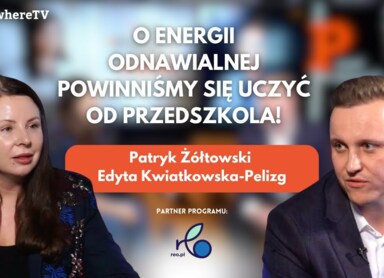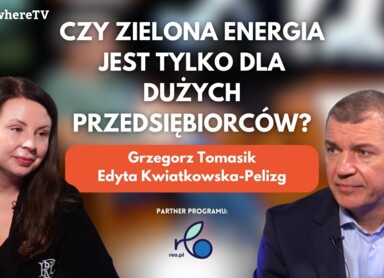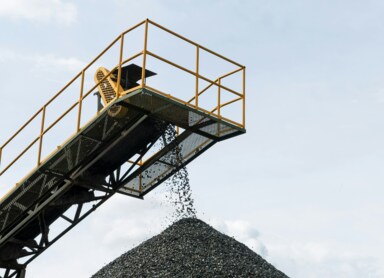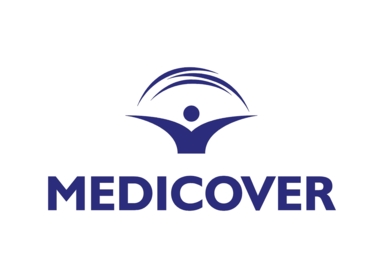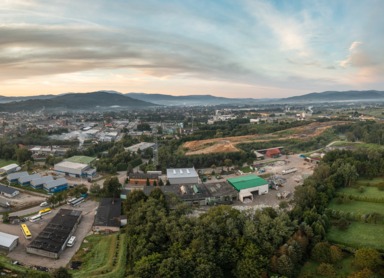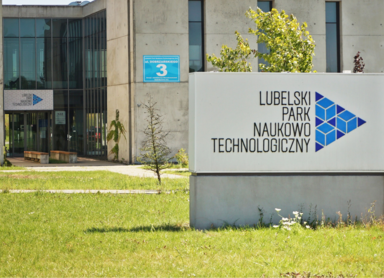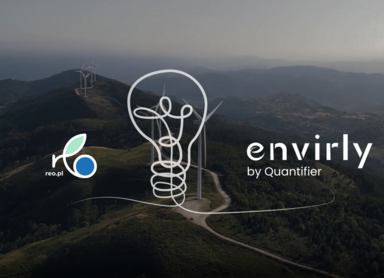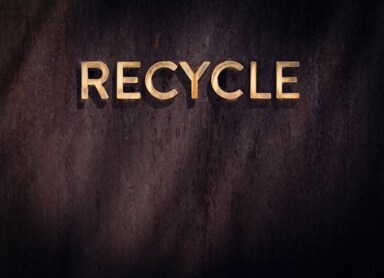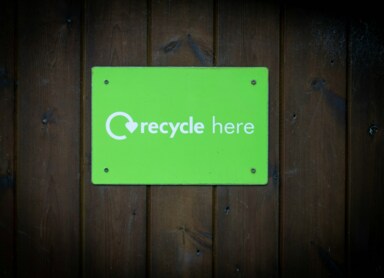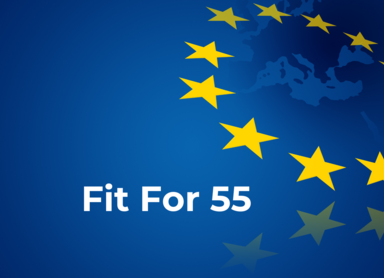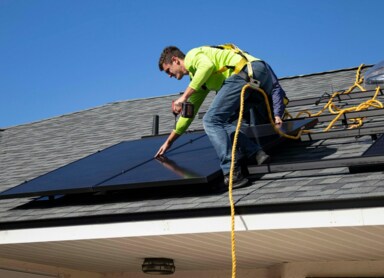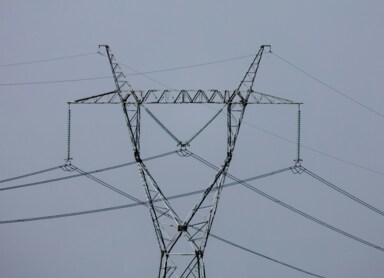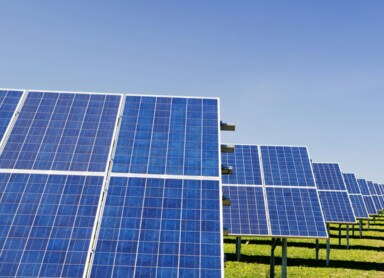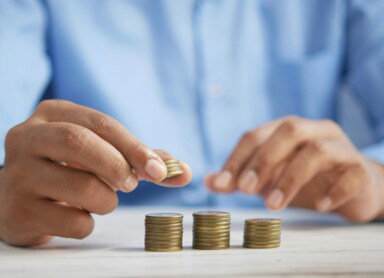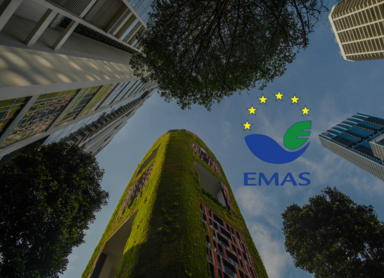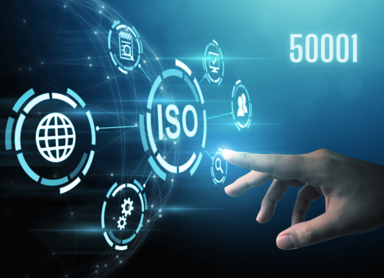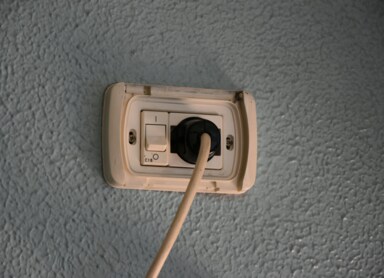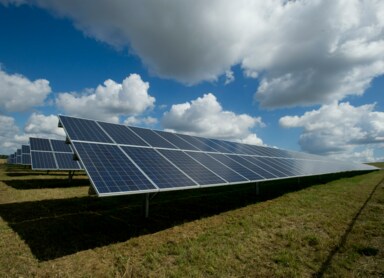Non-renewable energy sources – what are they, what disadvantages do they have, and do they have a future?
Non-renewable, or so-called traditional, energy sources have for decades been the foundation of energy systems around the world. Coal, crude oil, and natural gas are resources that, despite the growing popularity of alternative energy sources, still play a key role in the energy systems of many countries. This situation makes the energy transition, which will help free the global economy from fossil fuels, increasingly urgent. So, what is worth knowing about non-renewable energy sources?
Case Studies
The green face of Ventus Natural & Medical Spa**** Working together for a better future.
Ventus Natural & Medical Spa** is a hotel located in the heart of the Masuria region, which integrates picturesque landscapes and proximity to nature into its operations, fitting in with the holistic and recreational character of the place. A further step towards sustainability for the facility is the investment in renewable energy. Thanks to a partnership with Reo.pl, the Ventus Natural & Medical Spa** hotel is powered by green energy. Let's find out more about the history of this collaboration.
Reo.pl and Muffia Bakery - such cooperation tastes great!
The group of Reo.pl's clients has grown by another very interesting business. Implementation of non-standard, original culinary concepts and work to order is a specialty of Muffia Bakery...
CRUSIL Sp. z o.o. and Reo.pl - green cooperation has a future!
How did Reo.pl cooperate with the CRUSIL company, the only company in Europe mining and processing chalcedonite?
Oferta dla Hoteli i SPA
Kontakt z konsultantemZielona encyklopedia
What are oxygen trees and why is it worth planting them?
The fight against air pollution can take many forms, including planting vegetation that absorbs carbon dioxide and produces oxygen through the process of photosynthesis. In recent years, so-called OxyTrees, or oxygen trees, have been gaining popularity. What are they, and how can oxygen trees be used in urban environments as well as by large companies?
Energy class – what it is and what it means
When choosing household or office appliances, you’ll come across an energy class label. It visually represents how much electricity a device consumes and whether it is cost-efficient and environmentally friendly. Learn what energy classes are and how to interpret them.
Non-renewable energy sources – what are they, what disadvantages do they have, and do they have a future?
Non-renewable, or so-called traditional, energy sources have for decades been the foundation of energy systems around the world. Coal, crude oil, and natural gas are resources that, despite the growing popularity of alternative energy sources, still play a key role in the energy systems of many countries. This situation makes the energy transition, which will help free the global economy from fossil fuels, increasingly urgent. So, what is worth knowing about non-renewable energy sources?
Green news
What is the deposit return system and from when will it be in force in Poland
The deposit return system is a solution introduced in response to the provisions of the Single-Use Plastics Directive, also known as the plastics directive. Its aim is to increase the level of recycling and to reduce the amount of waste ending up in the environment. In Poland, it will come into force in October 2025, although it was originally planned to be launched much earlier. What is the deposit return system, and how has it worked in other European countries?
How does the Stop Smog program work and who can receive funding?
The Stop Smog program is financial support for municipalities that engage in thermal modernization projects and their residents. It is intended for centers where the so-called “anti-smog law” is in effect. As of January 1, 2021, it is administered by the Ministry of Climate and Environment in cooperation with the National Fund for Environmental Protection and Water Management.
How to keep waste records? Practical tips and obligations
Since 2018, the Ministry of Climate – previously the Ministry of Environment – has maintained an electronic BDO register, a database on products, packaging, and waste management. If your company is involved in the production, use, or disposal of waste in any way, you are likely required to register in the BDO. What should you know about this register?
Fit for 55 package - what is this climate package all about?
The Fit for 55 package is an ambitious initiative by the European Union aimed at combating climate change and achieving carbon neutrality by 2050. It includes a range of regulations and actions intended to reduce greenhouse gas emissions by at least 55% by 2030, compared to 1990 levels. The new regulations will affect many sectors of the economy, including energy, transportation, and construction, forcing member states to implement more sustainable and environmentally friendly solutions. What changes await us in the coming years, and what challenges will arise from achieving these goals?
Annual energy consumption it Poland. What are the trends?
Energy is an inseparable part of our daily lives, and analyzing its consumption is one of the key issues for the economy, politics, and the environment. Poland, as a country undergoing dynamic development, faces numerous challenges related to growing energy demand and the ongoing energy transition.
Biznes i prawo
Who is a Virtual Prosumer? Settlement Rules in 2025
Using a photovoltaic installation grants the user the status of a prosumer. However, the current provisions of the Renewable Energy Sources Act distinguish between different types of renewable energy prosumers. As of July 2, 2025, in addition to individual, tenant, and collective prosumers, the virtual prosumer model also comes into effect. Who exactly are these users of photovoltaic systems, and what sets them apart from a "regular" prosumer?
Central Energy Market Information System – A Change in the Energy Market. What Does the Introduction of CSIRE Mean?
As of July 1, 2025, the Central Energy Market Information System (CSIRE) is operational in Poland. Although its full implementation will take place in a year’s time, we can already see whether the centralized transmission, storage, and sharing of electricity market data is actually working. What exactly is CSIRE, and how does it function?
Green Marketing for Companies – How to Implement It?
Environmental protection, conscious care for preserving its values and biodiversity, promoting pro-environmental attitudes, and optimizing business activities are the key principles of green marketing. When companies define areas for development and create strategic and operational plans, their implementation can help eliminate the destructive impact on the planet. At this stage, questions and doubts often arise - What exactly is green marketing?
Environmental audit – what it is and how to conduct one
An increasing number of businesses are looking for ways to implement eco-friendly, zero-emission solutions in their daily operations. On one hand, such actions are driven by current legal requirements. On the other, by adopting green solutions, a company strengthens its image as a responsible market participant that cares about the environment. How can an environmental audit help you in this regard?
Three-phase electricity – is it a more eco-friendly solution for households and businesses?
Access to electricity is necessary to use any device, whether it’s a kettle or an industrial machine. At the stage of designing a building’s electrical installation, it becomes necessary to choose between a single-phase and a three-phase system. How do they differ from each other? And is three-phase electricity more eco-friendly?
Solar tax – who does it apply to and what are the current regulations?
Generating electricity from solar radiation has for years been an effective way to save money, allowing a significant reduction in electricity bills. However, reports on the internet suggest that, in search of additional revenue, the tax authorities plan to reach into taxpayers’ pockets by introducing a solar tax. How is this new fiscal charge supposed to work? Who does it apply to, and is there really anything to worry about?
Electricity refund – how to get it? Who is eligible?
Rising electricity prices have led the government to introduce various mechanisms aimed at reducing household bills. Some of these measures apply to businesses, while others are available to households. Read on to find out who can receive an electricity refund and how to apply for it.
EMAS – A Complete Guide to Environmental Certification
Companies and government agencies are increasingly requiring their partners to demonstrate proper care for the environment. Entrepreneurs who want to show they are consciously and responsibly taking the green path—and avoid accusations of greenwashing—may choose to implement the EMAS certification. But what exactly is EMAS and what benefits does it offer?
ISO 50001 Standard. How Does It Improve Energy Efficiency in a Company?
For many companies, the use of a significant amount of energy in daily operations is critical to their business. To ensure that an organization operates in an optimized and highly efficient manner, it should consider adopting one of the standardized management systems. One such system is the ISO 50001 standard. What are its principles, and why is it worth implementing?
How to Implement the ISO 14001 Standard in Your Company? A Practical Guide
ISO 14001 is an international standard that defines a set of requirements necessary to create an effective environmental management system. Its purpose is to support organizations in mitigating their negative impact on the natural environment while helping them maintain operational efficiency. Implementing ISO 14001 is becoming increasingly popular among businesses due to the crucial role that environmental policies play in a company's reputation and competitiveness. It is also a growing requirement from key stakeholders, including investors and consumers.
Ekoporady
How is hydrogen produced? Electrolysis – what is it and how does it work?
Ecological hydrogen as an energy source is one of the directions in the development of renewable energy. However, to enable its large-scale use, it is necessary to apply an easy, efficient, and inexpensive method of its production. Currently, green hydrogen can be obtained in several ways – through steam reforming of natural gas, photosynthesis, fermentation, and the electrochemical method, that is, electrolysis. Here we explain what hydrogen electrolysis involves.
How does a smart electricity meter work and what does it look like?
A traditional electricity reading requires a meter reader to visit a home or business. This person checks the readings on the electricity meter, and based on that data, forecasts and bills for electricity consumption are calculated. At Energy Consumption Points, smart electricity meters are becoming increasingly common, making the entire reading process easier and more accurate. Read on to learn how a smart electricity meter works.
Green certificates in the office – how to obtain them and what benefits they bring to a company
Eco-friendly construction is becoming increasingly popular among businesses. Having green certificates in the office is not only a way to meet ESG requirements but also proof that a company is a conscious and responsible market participant. So how can you apply for green certificates?
Does an extension cord use electricity? Find out!
Every electrical device connected to the power grid draws electricity in order to function. The amount of energy it consumes depends on the technical specifications of the device and how intensively it is used. But what about the extension cord or power strip itself? Here’s an explanation of whether an extension cord uses electricity.
Monthly electricity consumption in a single-family house – how much is it and how to reduce it?
Monthly electricity consumption is an electrifying topic not only for business owners but also for consumers. Despite the electricity price cap imposed by the Energy Regulatory Office (URE) on energy suppliers, as well as financial supplements and government support, monthly utility bills remain high for many households. How much is the average electricity consumption in a single-family house depending on the number of residents? How can it be calculated—and can it be reduced?
Solar Energy – how does It work and why Is it worth investing in?
Solar energy is one of the fastest-growing areas of renewable energy. It is inexpensive, maintenance-free, and at the same time generates real profits while requiring relatively small financial outlays. Its importance for businesses, as well as for individual consumers, is steadily increasing, as the numbers clearly show. In 2023, the total global capacity of photovoltaic installations exceeded 1,400 GW. Read on to find out why investing in solar energy is worthwhile!
NIP: 5213956475, REGON: 521277758

